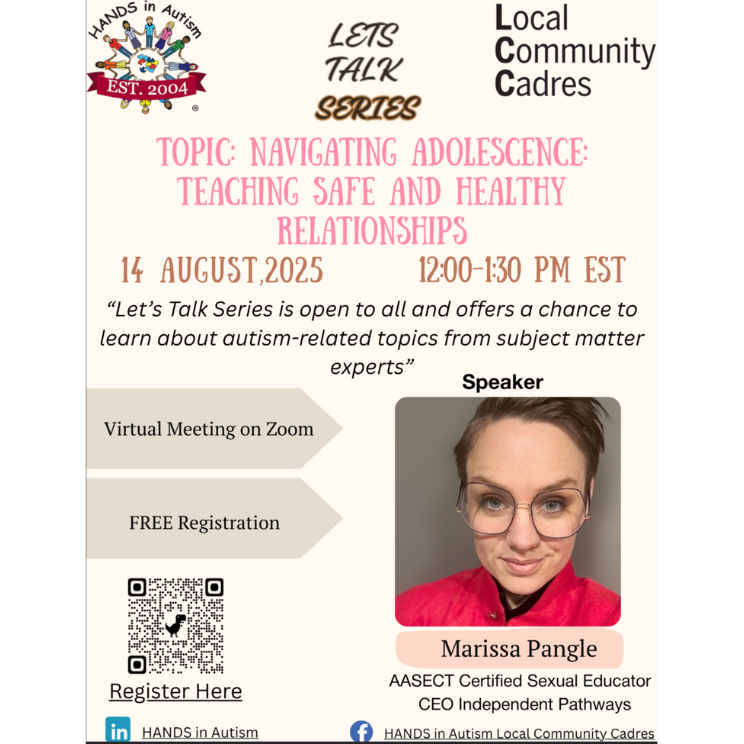Understanding boundaries and cultivating safe, healthy relationships are essential life skills for everyone—but especially for individuals with developmental disabilities. These skills not only promote personal safety but also enhance emotional well-being and social inclusion.
In August our HANDS in Autism’s Let’s Talk Series will address this need. On August 14, 2025, from 12-1:30 PM the series will feature a virtual session titled “Navigating Adolescence: Teaching Safe and Healthy Relationships,” presented by Marissa Pangle, AASECT Certified Sexual Educator and CEO of Independent Pathways. This free Zoom event offers a valuable opportunity for individuals, families, and professionals to learn and ask from a trusted expert in the field.
The urgency of this education is underscored by alarming statistics. Individuals with developmental disabilities are 4 to 10 times more likely to be sexually abused than those without disabilities
. Among women with intellectual disabilities, over 70% experience repeated sexual abuse, often by someone they know and trust—such as a caregiver or family member
. Shockingly, 55% of those who report abuse say it occurred more than 20 times
Teaching people with developmental disabilities about boundaries helps them understand their own comfort levels and respect others’ limits. This knowledge is vital in preventing exploitation and abuse, which they may be more vulnerable to due to limited exposure to education related to relationships.
Moreover, learning about healthy relationships fosters confidence and independence. It enables individuals to build meaningful connections based on trust, mutual respect, and clear communication—cornerstones of emotional and social well-being.
Join us on August 14th to learn more.


